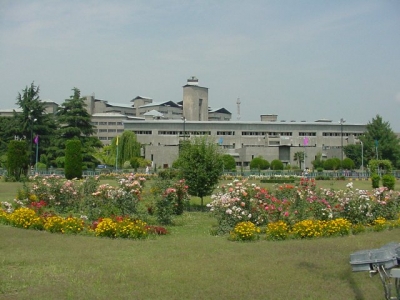Fayaz Ahmad Dar
The successful cloning of the Pashmina (Cashmere) goat by Kashmiri scientists a few days ago is very heartening news. However, such accomplishments are rarely heard of in Kashmir. This is because most of our academics and educational administrators have limited their work to what the state is comfortable with.
This has resulted in a disappointing track record of our education system in upholding its purpose. At an individual level education is an endeavour to develop according to one’s unique needs and potential. At societal level it is believed to help overcome collective challenges, make progress towards a better society andachieve equality. Many people, including teachers,are more critical than one would expect of the state of education in Jammu and Kashmir.
In conversations with young people, their disappointment with the kind of education that is available is evident immediately. The complaintsare many – outdated curriculum, poor quality teaching, inadequate infrastructure, limited choice of subjects, half-hearted research training and the huge gap between the education they get and the reality they live. For most people, the biggest reason for going to school or college continues to be getting a certificate that makes them eligible for a job.It does not take much effort, even for people who have not been part of the J&K’s education system, to realize that in its current form it, to a great extent defeats, and certainly does not fulfil the purpose of education. Why therefore do we see no concerted effort to reform it?
Education not rooted in the local context has not only led to the erosion of our traditional farm-based economy but also the culture of Kashmir. The imported style of education has insteadinstilled in young people a sense of shame in doing farm or traditional artisan work even if they have nothing else to do.
Education system has also failed to constructively deal with the political realities of Kashmir. In a place, which has been under political conflict for over six decades, students are prevented from discussing politics, history and related issues. None of our educational institutions, spearheaded by the Kashmir University, offers even a diploma in human rights, leave alone a degree or research program.
Modern education setup in India and by extension in Jammu and Kashmir has it roots in colonialism. In 1835, a member of the British Supreme Council of India, Thomas Macaulay recommended, “We must at present do our best to form a class who may be interpreters between us and the millions whom we govern; a class of persons Indian in blood and colour, but English in taste, in opinions, in morals and in intellect.” End of British rule, however, did not lead to a major reform in the education sector. Much of education has continued to serve first the imperial and then the neoliberal interests. Not to forget Macaulay’s Children themselves.
J&K dreamed of a progressive education system through Naya Kashmir- the 1944 vision document of All Jammu & Kashmir National Conference – which envisaged an education setup that would ‘link the child up with the actual life and work of the State’ and lay ‘special stress on tradition and history, and the culture of all the Nationalities.’ Alas, Naya Kashmir remained a dream ‘sabotaged’ by the state and betrayed by some Kashmiris.















